-
 Bitcoin
Bitcoin $88,555.6766
1.18% -
 Ethereum
Ethereum $1,626.4043
-1.22% -
 Tether USDt
Tether USDt $0.9998
-0.01% -
 XRP
XRP $2.1018
-1.27% -
 BNB
BNB $605.8750
0.04% -
 Solana
Solana $140.3422
0.04% -
 USDC
USDC $0.9999
0.00% -
 Dogecoin
Dogecoin $0.1643
1.27% -
 TRON
TRON $0.2481
1.05% -
 Cardano
Cardano $0.6359
-1.63% -
 Chainlink
Chainlink $13.3216
-2.53% -
 UNUS SED LEO
UNUS SED LEO $9.1797
-2.79% -
 Avalanche
Avalanche $20.3681
-2.52% -
 Stellar
Stellar $0.2473
-4.43% -
 Sui
Sui $2.3043
2.50% -
 Shiba Inu
Shiba Inu $0.0...01257
-1.15% -
 Toncoin
Toncoin $2.9429
-3.48% -
 Hedera
Hedera $0.1738
0.16% -
 Bitcoin Cash
Bitcoin Cash $347.0587
1.49% -
 Hyperliquid
Hyperliquid $18.2576
-0.35% -
 Litecoin
Litecoin $79.8456
-0.89% -
 Polkadot
Polkadot $3.7809
-4.73% -
 Dai
Dai $0.9999
-0.01% -
 Bitget Token
Bitget Token $4.4439
-0.50% -
 Ethena USDe
Ethena USDe $0.9991
-0.01% -
 Pi
Pi $0.6313
-0.96% -
 Monero
Monero $216.2035
0.57% -
 Pepe
Pepe $0.0...08138
3.46% -
 Uniswap
Uniswap $5.3889
-1.68% -
 OKB
OKB $50.9281
-0.23%
What are the recommendations for Ethereum spot trading platforms?
Choosing an Ethereum trading platform requires careful consideration of security, fees, features, user experience, and regulatory compliance; prioritizing these factors mitigates risk and enhances trading success.
Feb 27, 2025 at 11:24 pm
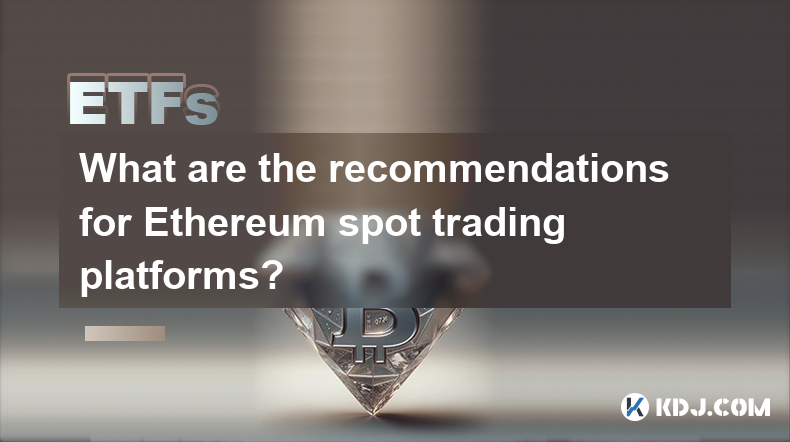
What are the recommendations for Ethereum spot trading platforms?
Key Points:
This article will explore several crucial factors to consider when choosing an Ethereum spot trading platform and will provide detailed insights into various platforms based on security, fees, features, user experience, and regulatory compliance. We will delve into specific aspects of each platform, avoiding subjective rankings but instead offering a comprehensive analysis to aid in your decision-making process. The information provided aims to equip you with the knowledge to select the platform best suited to your individual needs and risk tolerance within the dynamic world of cryptocurrency trading. Remember that the cryptocurrency market is highly volatile, and all investments carry risk.
- Security: This encompasses the platform's security measures to protect user funds and data, including measures against hacking, theft, and other security breaches. We will examine the platform's track record, insurance policies (if any), and the technological infrastructure employed to ensure the safety of your assets. A robust security system is paramount in the volatile world of cryptocurrency trading, as a single breach can lead to significant financial losses. The platform's commitment to security audits and transparency in its security practices will also be evaluated. The use of cold storage for a significant portion of user funds, multi-factor authentication, and regular security updates are key indicators of a secure platform. The platform's history and reputation concerning security incidents are also crucial factors to consider, with a proven track record of maintaining the security of user funds being highly desirable. Finally, we'll examine the platform's approach to incident response, outlining how it handles security breaches should they occur.
- Fees: Trading fees, withdrawal fees, and deposit fees can significantly impact your profitability. We will analyze the fee structures of different platforms, comparing them to determine which offers the most competitive pricing for Ethereum spot trading. This will involve a detailed examination of maker-taker fees, which vary depending on the platform and trading volume, as well as any additional fees associated with specific trading features or functionalities. The impact of these fees on overall trading costs will be calculated to provide a clear comparison between different platforms. We will also analyze the currency options available for deposits and withdrawals and the associated fees for each. The speed and efficiency of withdrawals will also be considered, as delays can impact trading strategies and potentially lead to missed opportunities. Furthermore, the transparency of the fee structure is crucial, with clearly defined fees being preferable to hidden or unclear charges.
- Features: This includes the range of trading tools, charting capabilities, order types, and other features offered by the platform. We will examine how these features enhance the trading experience and contribute to better decision-making. The availability of advanced charting tools, technical indicators, and real-time market data is critical for informed trading. Different order types, such as limit orders, market orders, and stop-loss orders, allow for various trading strategies, and the availability of these options is an important consideration. The platform's user interface (UI) and user experience (UX) also significantly impact ease of use and overall satisfaction. An intuitive and user-friendly interface can make trading significantly more efficient. Furthermore, the availability of educational resources and customer support is also a valuable feature.
- User Experience: This involves evaluating the ease of use of the platform's interface, the responsiveness of customer support, and the overall usability of the platform's features. A positive user experience is essential for efficient and stress-free trading. This includes the intuitiveness of the platform's design, the speed of order execution, and the availability of helpful tutorials and documentation. The responsiveness and helpfulness of customer support are crucial, especially when encountering technical issues or needing assistance with account management. The availability of multiple communication channels, such as email, live chat, and phone support, is a positive sign. The platform's mobile app (if available) will also be evaluated for its usability and functionality. Accessibility features for users with disabilities will also be considered.
- Regulatory Compliance: The legal and regulatory landscape of cryptocurrency trading varies significantly across jurisdictions. We will examine the regulatory compliance of different platforms, focusing on whether they are registered with relevant authorities and operate within the bounds of applicable laws. This is crucial for ensuring the legality and security of your trading activities. The platform's approach to Know Your Customer (KYC) and Anti-Money Laundering (AML) procedures will be examined, ensuring they comply with international standards. The platform's transparency regarding its regulatory status and compliance procedures will be assessed. The location of the platform's servers and its legal jurisdiction will also be considered. Understanding the legal implications of using a particular platform is essential for mitigating potential risks and legal complications.
(Note: Due to the dynamic nature of the cryptocurrency market and the continuous evolution of platforms, specific platform names and details are omitted to prevent outdated information. The focus is on providing a framework for evaluating platforms based on the criteria listed above.)
FAQs:
Q: What are the risks associated with Ethereum spot trading?
A: Ethereum spot trading, like all cryptocurrency trading, involves significant risks. These include market volatility (price fluctuations), security risks (hacks, theft), regulatory uncertainty, and counterparty risk (risks associated with the platform itself). Thorough research and risk management strategies are crucial.
Q: How can I protect myself from scams when choosing an Ethereum spot trading platform?
A: Be wary of platforms promising unrealistic returns or lacking transparency. Verify the platform's legitimacy through independent research and check for reviews from reputable sources. Look for platforms that prioritize security and have robust KYC/AML procedures. Avoid platforms that operate anonymously or lack clear contact information.
Q: What factors should I prioritize when selecting an Ethereum spot trading platform?
A: Prioritize security, reasonable fees, a user-friendly interface, and regulatory compliance. Consider the platform's features, such as charting tools and order types, to ensure they align with your trading style and needs. Always conduct thorough research before depositing any funds.
Q: Are there any free Ethereum spot trading platforms?
A: While some platforms might advertise "free" trading, they often generate revenue through other means, such as maker-taker fees, withdrawal fees, or data sales. It's essential to carefully examine the complete fee structure before choosing a platform.
Q: How do I compare the fees of different Ethereum spot trading platforms?
A: Compare maker-taker fees, withdrawal fees, and deposit fees. Consider the overall cost of trading, taking into account both the trading fees and the potential impact of slippage (the difference between the expected price and the actual execution price). Some platforms offer tiered fee structures, so factor in your trading volume when comparing fees.
Q: What is the significance of regulatory compliance in choosing an Ethereum spot trading platform?
A: Regulatory compliance provides a level of protection for users. Platforms that comply with relevant regulations are subject to oversight and are less likely to engage in fraudulent activities. This protects your assets and reduces your exposure to legal risks. Trading on a non-compliant platform can expose you to significant legal and financial risks.
Disclaimer:info@kdj.com
The information provided is not trading advice. kdj.com does not assume any responsibility for any investments made based on the information provided in this article. Cryptocurrencies are highly volatile and it is highly recommended that you invest with caution after thorough research!
If you believe that the content used on this website infringes your copyright, please contact us immediately (info@kdj.com) and we will delete it promptly.
- Bitget Exploited: Market-Maker Bot Glitch Triggers $100M Trading Frenzy, Turning $VOXEL into a Crypto Storm
- 2025-04-22 16:40:12
- MANTRA CEO John Patrick Mullin announces plans to burn 300 million OM tokens to stabilize market price after recent massive price crash.
- 2025-04-22 16:40:12
- What is Hyperlane? It is a framework for enabling interoperability among different blockchain networks
- 2025-04-22 16:35:12
- Mantra Burns 16.5% of Its Total Supply to Boost Staking Rewards
- 2025-04-22 16:35:12
- Why Is Polygon (POL) Price Up?
- 2025-04-22 16:30:13
- Can Cardano's Triangle Breakout Drive ADA Price Higher?
- 2025-04-22 16:30:13
Related knowledge
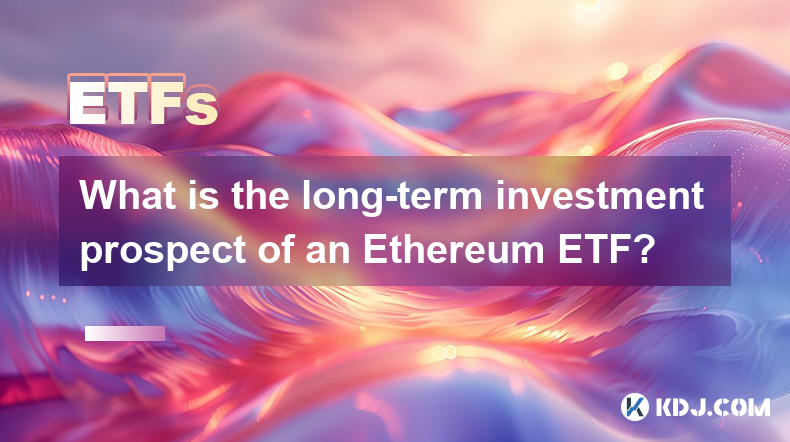
What is the long-term investment prospect of an Ethereum ETF?
Mar 18,2025 at 03:01pm
Key Points:Uncertainty surrounds the long-term prospects of an Ethereum ETF due to regulatory hurdles and market volatility.Approval hinges on regulatory clarity regarding cryptocurrencies, especially concerning investor protection and market manipulation.Successful ETF launches could boost Ethereum's price and adoption, but failure could negatively imp...
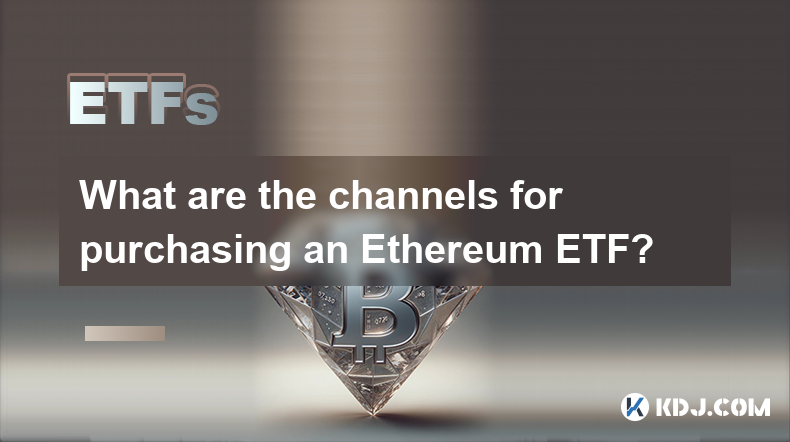
What are the channels for purchasing an Ethereum ETF?
Mar 18,2025 at 01:49am
Key Points:Currently, there are no Ethereum ETFs available for direct purchase by the general public in most major markets.Access to Ethereum exposure through ETFs is limited, mainly through futures-based ETFs.Purchasing Ethereum directly or through other investment vehicles remains a viable alternative.Regulatory hurdles and market complexities signifi...
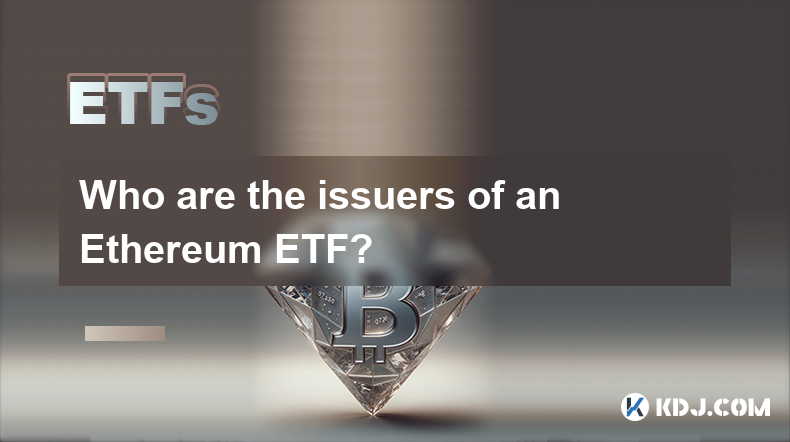
Who are the issuers of an Ethereum ETF?
Mar 19,2025 at 08:07pm
Key Points:There are no currently approved Ethereum ETFs in the US, meaning no single issuer can be definitively named. However, several firms have filed applications.The issuers of potential Ethereum ETFs will be large, established financial institutions, typically asset management companies.The specific requirements for ETF issuers are stringent and o...
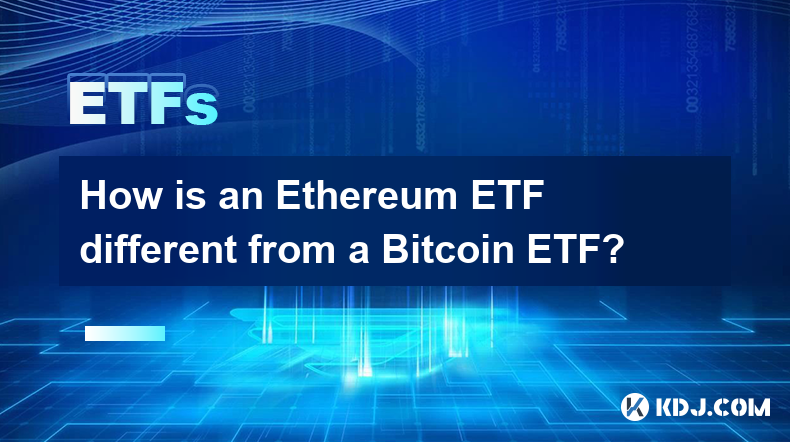
How is an Ethereum ETF different from a Bitcoin ETF?
Mar 17,2025 at 10:55am
Key Points:Underlying Asset: The core difference lies in the underlying asset: an Ethereum ETF tracks the price of Ether (ETH), while a Bitcoin ETF tracks the price of Bitcoin (BTC).Technology and Use Cases: Ethereum's blockchain supports smart contracts and decentralized applications (dApps), creating a distinct technological and investment narrative c...
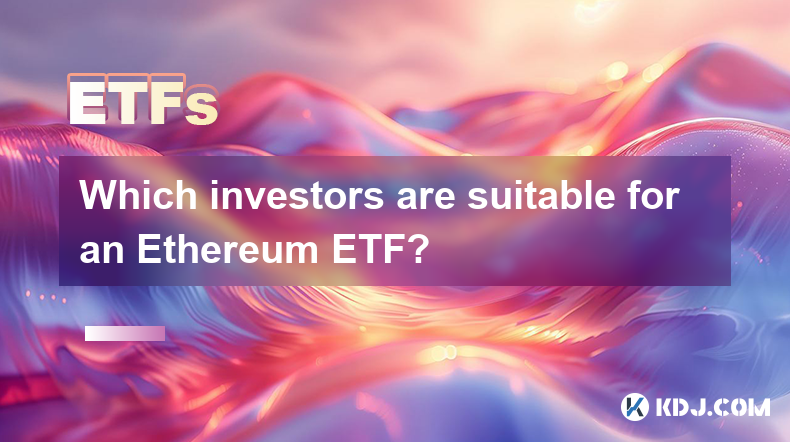
Which investors are suitable for an Ethereum ETF?
Mar 16,2025 at 05:50pm
Key Points:Risk Tolerance: Ethereum ETF investment requires a high risk tolerance due to the volatility of the cryptocurrency market.Investment Goals: Investors seeking long-term growth potential and exposure to the Ethereum ecosystem are suitable candidates.Investment Horizon: A longer-term investment horizon is crucial to weather market fluctuations.U...
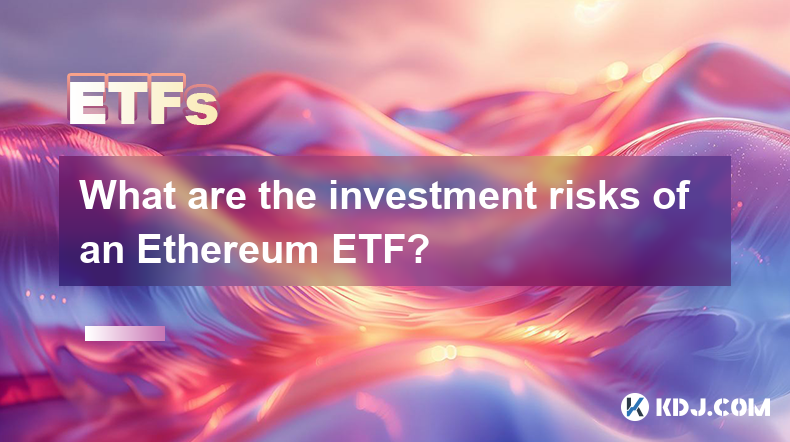
What are the investment risks of an Ethereum ETF?
Mar 18,2025 at 02:12am
Key Points:Price Volatility: Ethereum's price is highly volatile, impacting ETF share prices.Regulatory Uncertainty: Changes in regulatory landscapes can significantly affect ETF trading and performance.Market Manipulation: The potential for market manipulation, particularly in smaller ETFs, exists.Underlying Asset Risk: Risks associated with the Ethere...

What is the long-term investment prospect of an Ethereum ETF?
Mar 18,2025 at 03:01pm
Key Points:Uncertainty surrounds the long-term prospects of an Ethereum ETF due to regulatory hurdles and market volatility.Approval hinges on regulatory clarity regarding cryptocurrencies, especially concerning investor protection and market manipulation.Successful ETF launches could boost Ethereum's price and adoption, but failure could negatively imp...

What are the channels for purchasing an Ethereum ETF?
Mar 18,2025 at 01:49am
Key Points:Currently, there are no Ethereum ETFs available for direct purchase by the general public in most major markets.Access to Ethereum exposure through ETFs is limited, mainly through futures-based ETFs.Purchasing Ethereum directly or through other investment vehicles remains a viable alternative.Regulatory hurdles and market complexities signifi...

Who are the issuers of an Ethereum ETF?
Mar 19,2025 at 08:07pm
Key Points:There are no currently approved Ethereum ETFs in the US, meaning no single issuer can be definitively named. However, several firms have filed applications.The issuers of potential Ethereum ETFs will be large, established financial institutions, typically asset management companies.The specific requirements for ETF issuers are stringent and o...

How is an Ethereum ETF different from a Bitcoin ETF?
Mar 17,2025 at 10:55am
Key Points:Underlying Asset: The core difference lies in the underlying asset: an Ethereum ETF tracks the price of Ether (ETH), while a Bitcoin ETF tracks the price of Bitcoin (BTC).Technology and Use Cases: Ethereum's blockchain supports smart contracts and decentralized applications (dApps), creating a distinct technological and investment narrative c...

Which investors are suitable for an Ethereum ETF?
Mar 16,2025 at 05:50pm
Key Points:Risk Tolerance: Ethereum ETF investment requires a high risk tolerance due to the volatility of the cryptocurrency market.Investment Goals: Investors seeking long-term growth potential and exposure to the Ethereum ecosystem are suitable candidates.Investment Horizon: A longer-term investment horizon is crucial to weather market fluctuations.U...

What are the investment risks of an Ethereum ETF?
Mar 18,2025 at 02:12am
Key Points:Price Volatility: Ethereum's price is highly volatile, impacting ETF share prices.Regulatory Uncertainty: Changes in regulatory landscapes can significantly affect ETF trading and performance.Market Manipulation: The potential for market manipulation, particularly in smaller ETFs, exists.Underlying Asset Risk: Risks associated with the Ethere...
See all articles























































































